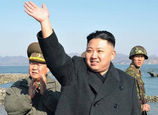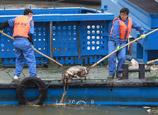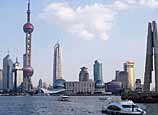
But Japanese media reported that the country is set to launch its TPP negotiations in July.
In spite of fears that the tri-nation FTA negotiations would be suspended because of the territorial disputes among the three countries, talks are believed to be poised to start as scheduled.
Chen Deming, China's minister of commerce, announced at a news conference on the sidelines of the annual session of the National People's Congress that the first round of FTA talks will be launched in South Korea and held alternately among the three countries in the future.
According to a joint feasibility study issued last year, the three economies together accounted for 20 percent of global gross domestic product and 18.5 percent of global exports in 2010.
"It's the FTA with China and South Korea which could bring more economic benefit to Japan rather than the TPP, which provides more political significance to the country," said Yao Haitian, a researcher at the Institute of Japanese Studies at the Chinese Academy of Social Sciences.
"The TPP is a US move to exclude China from other major economies within the Asia-Pacific region," he added.
Yao said that the impact of the TPP on Sino-Japanese trade and investment might not be that significant, given the lack of influence that many other bilateral and multilateral trading systems have had in recent years.
However, Tu Xinquan, deputy director of the China Institute for WTO Studies at the University of International Business and Economics, said that tariff reduction exceptions are not acceptable within the TPP, therefore Japan has to open up its agriculture industry which would become fragile once the importing tariffs were cut.
The opening up of Japan's agriculture is also a component of the ongoing FTA talks and may become a key bargaining chip for Japan to urge China and South Korea to further cut import tariffs on some key industries, including the auto and mechanical sectors.

















 Hailstones measuring 7 cm in diameter hit SW China
Hailstones measuring 7 cm in diameter hit SW China


![]()
